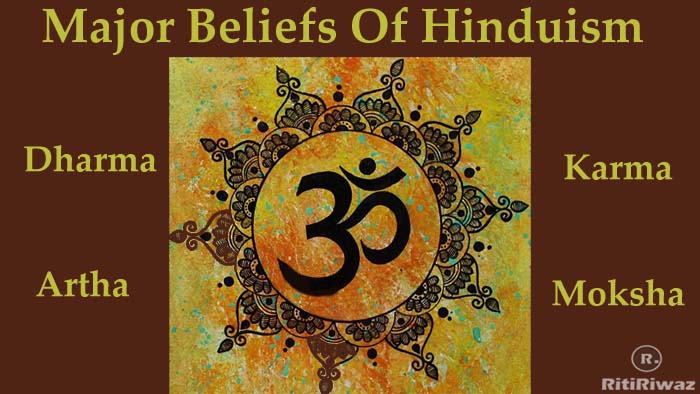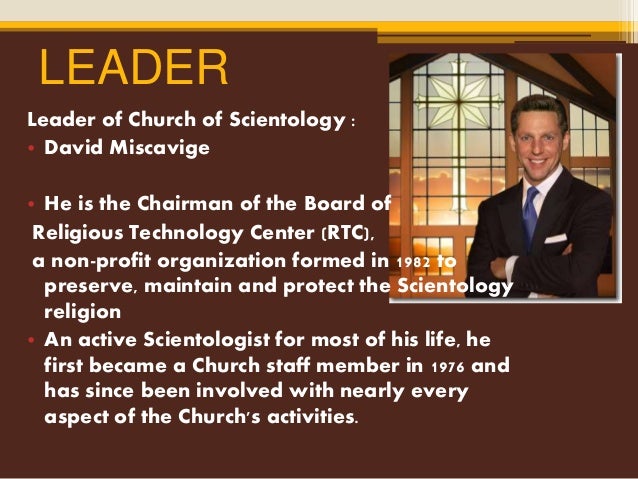Scientology teaches that people are immortal spiritual beings who have forgotten their true nature. Scientology is a set of beliefs and practices invented by American author L.
Among the basic tenets of Scientology are the beliefs that human beings are.

Church of scientology beliefs. Christians Believe We Die OnceScientology puts forth that spirits called thetans occupy multiple bodies over. Emotional tone scale and. Ron Hubbard a science fiction writer who holds the Guinness World Record for Most Published Works By One Author.
Xenu also referred to as Xemu was once ruler of the Galactic Confederacy an ancient organization of 76 planets. THE SCIENTOLOGY RELIGION Thanks to scientific and technical advances over the last hundred years most people today are materially wealthier than their forefathers. The church asserts that through Scientology training its members come to understand both themselves as spiritual beings and engrams as energy clusters that inhibit the thetan from functioning freely.
By taking all of the classes the Church of Scientology offers Scientologists believe that one can reclaim his true thetan form become closer to God or the Supreme Being and unlock abilities to control life matter energy space and time that have been repressed by being in human form. Christians Assert that All Fall. At the heart of the religions worldview is the idea that human beings are more that simply a mind and a body which is the traditional stance of much contemporary psychiatry and psychology.
Scientology includes belief in God but offers no details or doctrine about God. Here are the main five. Scientology Beliefs God in Scientology.
The foundational texts of Scientology and the. Ron Hubbard Scientologys fundamental creation myth goes something like this. Background Beliefs Practices Scientology follows a long tradition of religious practice.
One central practice of Scientology is an activity known as auditing listening which seeks to elevate an. Ron Hubbard starting in 1952 as a successor to his earlier self-help system Dianetics. Based on his personal research Hubbard concluded that a human is made up of three parts.
Ron Hubbard the belief in God the goal of spiritual freedom its religious services and communities the Churchs organization of churches and missions and its humanitarian groups. For Hubbard the process of freeing the individual is the fundamental purpose of religion. This he promoted through various publications and through the Hubbard Dianetic Research Foundation which he established in 1950.
Ron Hubbard Scientology is a religion that offers a precise path leading to a complete and certain understanding of ones true spiritual nature and ones relationship to self family groups Mankind all life forms the material universe the spiritual universe and the Supreme Being. Scientology does not include an. It has been variously defined as a cult a business or a new religious movement.
The Church says that its use of the legal system is necessary to protect its intellectual property and its right to freedom of religionCritics say that most of the Churchs claims are designed to harass so. Scientology belief is rooted in the ideas found in the writings and lectures of L. Core beliefs and practices Reactive mind and traumatic memories.
Hubbard initially developed a set of ideas which he represented as a form of therapy called Dianetics. Ron Hubbard Scientology is a religion that offers a precise path leading to a complete and certain understanding of ones true spiritual nature and ones relationship to self family groups Mankind all life forms the material universe the spiritual universe and the Supreme Being. Ron Hubbard the founder of what eventually became the Church of Scientology.
Scientology was founded by L. The Church of Scientology has been involved in court disputes in several countries. The core belief of the Church of Scientology is that a human is an immortal spiritual being called a thetan that is just a resident in a physical body so essentially we rent not own our.
Human Nature and Thetan. Its roots lie in the deepest beliefs and aspirations of all great religions thus encompassing a religious heritage as old and as varied as Man himself. Ron Hubbard and an associated movement.
Read frequently asked questions about the Scientology religion what Scientologists believe Dianetics and auditing founder L. Christians Believe Humans Exist to Glorify GodScientology puts forth that the basic principle of human existence is. In some cases when the Church has initiated the dispute questions have been raised as to its motives.
The Church of Scientology promotes and teaches Scientology a body of beliefs and related practices created by L. Yet by their own accounts the improvement in the quality of their lives has not matched their material gains.
Those who worship Vishnu the preserver and Vishnus important incarnations Rama Krishna and. The power upholds all parts of the universe but Hindus do not worship the concept.
 Core Belief Of Hinduism Ritiriwaz
Core Belief Of Hinduism Ritiriwaz
The other main Hinduism beliefs include soul Dashavataram belief in God etc.

The beliefs of hinduism. Other major beliefs of Hinduism are the concept of reincarnation and it is also the central belief in Hinduism. The word Hindu is an exonym and while Hinduism has been called the oldest religion in the world many practitioners refer to their religion as Sanātana Dharma Sanskrit. The very essence of the universe and the only Reality.
It is not necessary to worship more than one deity rather permissible to worship one god as a favorite. Scholars do not typically define Hindusim in terms of common doctrine but rather by loosely shared rituals traditions and religious inclinations. Belief in continuity of life.
Hinduism does not have an official set of beliefs. Although the name Hinduism is relatively new having been coined by British writers in the first decades of the 19th century it refers to a rich cumulative tradition of texts and practices some of which date to the 2nd millennium bce or possibly earlier. The 10 disciplines in Hinduism include five political goals called Yamas or Great Vows and five personal goals called Niyamas.
This is called Moksha. Beyond both of these is the spirit or the spark of God within the soul. Reincarnation means the soul or Atman takes a new body after death and it grows and matures and repeats this cycle until it attains Moksha.
According to the Vedas Truth is One but the wise express it in a variety of ways. There is no formal creed one must accept to be Hindu. Evil and error are not ultimate.
These deities are linked to universal and natural processes. Core beliefs of Hinduism. Hinduism is an Indian religion and dharma or way of life.
It is the union of reason and intuition that cannot be defined but is only to be experienced. Common to virtually all Hindus are certain beliefs including but not limited to the following. Basic beliefs of Hinduism are reincarnation and Karma.
Hindus are often classified into three groups according to which form of Brahman they worship. How did Hinduism begin. The central beliefs of Hinduism around which rotates Hinduism religion.
A preference for one deity while not excluding or disbelieving others. Basic Beliefs The fundamental teaching of Hinduism or Vedanta is that a human beings basic nature is not confined to the body or the mind. A belief in the possibility of liberation and release moksha by which the endless cycle of birth death and rebirth samsara can be resolved Hinduism is bound to the hierarchical structure of the caste system a categorization of members of society into defined social classes.
A belief in many gods which are seen as manifestations of a single unity. Hindus in general believe that time is cyclical much like the four seasons and eternal rather than linear and bounded. Hinduism is not just a faith.
Brahman is Truth and Reality. Here are some of the key beliefs shared among Hindus. The 5 Great Vows Yamas are shared by many Indian philosophies.
Hindus believe in Brahman which refers to a power throughout the universe. Animals soul is believed to be equivalent to the soul of a human being and Hindus believe that the main aim of a Hindus should be one of those souls that are with Parmatma. Though many perceive Hinduism as a polytheistic religion its philosophy is much more nuanced.
Hinduism is the self-generated religion and does not constrict under certain rules as commandments. It is the worlds third-largest religion with over 125 billion followers or 1516 of the global population known as Hindus. Instead Hinduism is a quite diverse set of various religious beliefs and practices.
Hindus believe in worshipping God as an image or idol perhaps also they worship one or more gods in turn. Texts refer to successive ages yuga designated respectively as golden. Hinduism is a religion but it also a broad way of life for much of India and Nepal containing a broad spectrum of beliefs and practices some of which are akin to primitive pantheism while others represent some very profound metaphysical ideals.
The major Hinduism beliefs consist of - 1. The Yamas are political goals in that they are broad-based social and universal virtues in the form of moral restraints or social obligations. The core beliefs of Hinduism are outlined in Sanskrit scriptures formed the basis of the Vedic religions later known as Hinduism and contributed to the development of the social and political roles of a caste system and in the teachings about reincarnation.
Therefore main aim of Hinduism is liberation from the cycle of rebirth. Hindus pursue knowledge and understanding of the Truth. Belief in soul Aatma All the Hindus believe that every living being has a soul Aatma and this soul is led by one superior soul known as Parmatma.
As a layman if I desire to know the basic beliefs of Hinduism. One of the basic beliefs of Hinduism entails attaining moksha from the cycle of rebirth. Can we enumerate the core Hinduism beliefs in a manner easy to grasp by a commoner.
Hinduism major world religion originating on the Indian subcontinent and comprising several and varied systems of philosophy belief and ritual.
